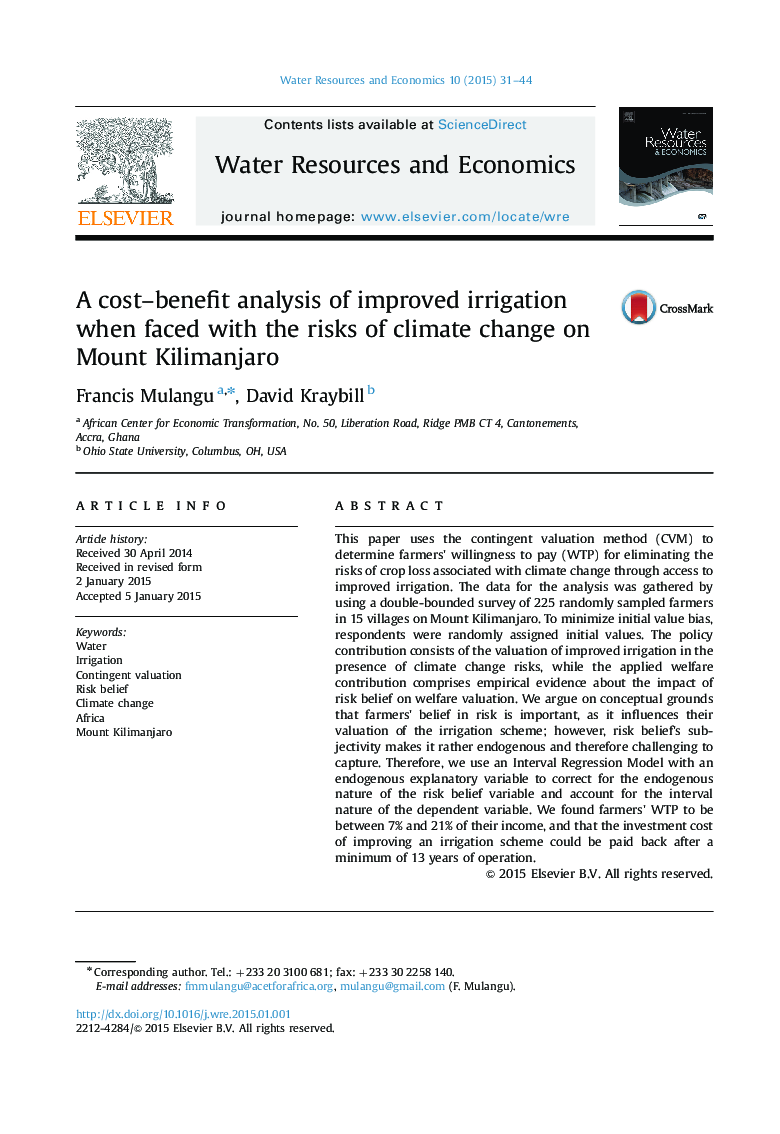| Article ID | Journal | Published Year | Pages | File Type |
|---|---|---|---|---|
| 991943 | Water Resources and Economics | 2015 | 14 Pages |
This paper uses the contingent valuation method (CVM) to determine farmers׳ willingness to pay (WTP) for eliminating the risks of crop loss associated with climate change through access to improved irrigation. The data for the analysis was gathered by using a double-bounded survey of 225 randomly sampled farmers in 15 villages on Mount Kilimanjaro. To minimize initial value bias, respondents were randomly assigned initial values. The policy contribution consists of the valuation of improved irrigation in the presence of climate change risks, while the applied welfare contribution comprises empirical evidence about the impact of risk belief on welfare valuation. We argue on conceptual grounds that farmers׳ belief in risk is important, as it influences their valuation of the irrigation scheme; however, risk belief׳s subjectivity makes it rather endogenous and therefore challenging to capture. Therefore, we use an Interval Regression Model with an endogenous explanatory variable to correct for the endogenous nature of the risk belief variable and account for the interval nature of the dependent variable. We found farmers׳ WTP to be between 7% and 21% of their income, and that the investment cost of improving an irrigation scheme could be paid back after a minimum of 13 years of operation.
